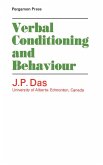The book begins with an introductory chapter on the evaluation of training, experiments on training, limitations of training, and training problems. This is followed by separate chapters that discuss how trainers can influence the course of learning by manipulating knowledge of results; methods for minimizing errors in early learning; visual training methods; the use of words and actions in training; and the importance of practice in learning. Subsequent chapters cover the transfer of training; automatic teaching, or ""programmed instruction""; and recommendations for trainers.
Dieser Download kann aus rechtlichen Gründen nur mit Rechnungsadresse in A, B, BG, CY, CZ, D, DK, EW, E, FIN, F, GR, HR, H, IRL, I, LT, L, LR, M, NL, PL, P, R, S, SLO, SK ausgeliefert werden.









